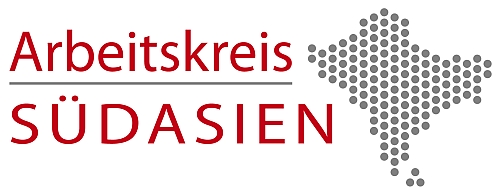The 13th Annual Meeting of the Arbeitskreis Südasien of the Deutsche Gesellschaft für Geographie (DGfG) will take place on February 3rd and 4th 2023 at the Centre for Economics and Ecosystem Management at University for Sustainable Development Eberswalde (HNEE).
Schicklerstraße 5 (Stadtcampus Haus 6, Große Aula), 16225, Eberswalde
Program
February 3 (Friday), 13:30–18:00 CET
| 13:30 | Registration |
| 14:00 | Welcome |
| 14:15–15:45 | Session 1. Place-making: historical and environmental perspectives Maximilan Keiser (University of Cologne): The City Beautiful Chandigarh – Problems of Cultural Heritage Manasi Mohan S. (University of Hyderabad): Nation Making through Maps: Cartography and Abrogation of Article 370 in India Luise Haufe (Freie Universität Berlin): Urban Eris? Water body transformation in peri-urban Chennai, South India Swathi Manalodiparambil (Central European University): Constituting Place for Traditional Crops: Agrobiodiversity Conservation in Wayanad |
| 15:45–16:15 | Coffee break |
| 16:15–17:25 | Session 2. Power and politics in development Muhammad Tayyab Safdar (University of Virginia): The BRI in national peripheries: Gwadar and the limits of outsourced development Usman Ashraf (University of Helsinki): Participation and Exclusion in mega tree-plantation projects Rabia Nadir (Lahore School of Economics), Fizza Batool, Huda Javed, Munir Ghazanfar, Soha Bashir & Huma Naeem: Pauperization and migration: The continuing violence of green revolution in rural Punjab, Pakistan |
| 17:30–18:15 | Session 3. Health and environment Merle Müller-Hansen (Augsburg University): ”Wealthy – Healthy – Chubby“ and ”Outside Foods“ in the New Urban Food Environments: Evidence from India and Mexico Carsten Butsch (Bonn University): Health impacts of eWaste processing in India |
| 18:15–18:45 | General assembly of the AK Südasien |
| 19:00 | Joint dinner at SHIVA Restaurant |
February 4 (Saturday), 09:15–13:30 CET
| 09:30 | Welcome |
| 09:45–11:15 | Session 4. Environmental change: impacts, management and risks Isabelle Schmidt (Freie Universität Berlin): Impact of rainwater harvesting and management system on water budget and agricultural practices in Southern India Muhammad Nasar-u-Minallah (Humboldt University Berlin & Govt. Postgraduate College Gojra): Remote Sensing Approach to Evaluating the Effects of Urban Vegetation Loss on the Urban Thermal Environment in a Fastest-Growing Megacity of Pakistan Paul D. Wagner, Shamita Kumar & Nicola Fohrer (Kiel University & Bharati Vidyapeeth University): Incorporating aspects of human and physical geography in an integrated modeling approach: A case study on global change impacts in the Western Ghats, India Rainer Bell (University of Bonn), Narayan Gurung, Monique Fort, Christoff Andermann, Gilles Arnaud-Fassetta, Kristen L. Cook, Odin Marc, and Katy Burrows: Cascading natural hazards and risky infrastructure development in Kali Gandaki Valley, Nepal Himalaya |
| 11:15–11:45 | Coffee break |
| 11:45–13:15 | Session 5. Livelihoods, vulnerabilities & inequalities Vincent Böttner (Freie Universität Berlin): Plantation work on smallholder plots: changing labour relations in Assamese tea production networks Fizza Batool (University of Augsburg): Mapping the impact of subsidies on agrarian change in Ishkoman Valley (Pakistan) Frauke Kraas (University of Cologne): Chin refugees in Mizoram/India Priya Singh (University of Bremen): Social protection through government or informal measures: Reasons behind the choice of one over another |
| 13:15 | Closing remarks |
| 13:30–13:45 | The End |
Note: Register for attendance by January 20th 2023 via email to Mehwish Zuberi at Mehwish.zuberi@hnee.de. Please indicate if you would like to participate online.
